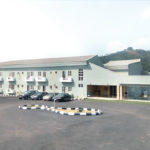The two-day event was the maiden Nigeria Housing Finance Conference, with the theme, “Financing affordable housing: Realities, necessities and possibilities” organised at the Musa Yar’adua Centre by the Nigeria Integrated Social Housing Cooperative Society Limited (NISH).
One major issue of concern to participants was what the guest speaker, Professor Oyebanji Oyeyinka, called ‘ghost houses’ especially in the Federal Capital Territory (FCT).
The former regional director for Africa, UN-Habitat, said the empty houses scattered in parts of Abuja, Ikoyi and Victoria Island, Lagos were proceeds of corruption, arguing that nobody would build choice property with hard earned money and allow them to fallow.
He, therefore, called on the government to adopt what was obtainable in other climes by taxing ‘big houses’ in Abuja, whether occupied or not, as another creative way of raising money for affordable housing.
“I call them ghost houses because they are empty; they’re based on the awful economy. If you use your hard earned money to build a house, even if you have to half the rent, you will do it just to pay back your mortgage or loan. But when someone leaves a house of eight-bedroom empty for three to 10 years, then something is wrong.
“On the one hand, we are in a democratic government, so you can’t just go and seize someone’s house but there are creative ways government can put some sort of levy on these houses. I know some people would not like this but I have to say it, in a country where a majority of people don’t have shelter, it’s a problem. In most of the countries, they put some tax and even levy them by space, say per square metre.
“Of course, the government is doing a lot on anti-corruption, but there is something wrong for empty houses to be everywhere in Abuja, Ikoyi Lagos and some on,” Oyeyinka said.
He said the new urban agenda was in line with the Goal 11 of the Sustainable Development Goals (SDGs).
The guest speaker added that urban interventions in areas of housing, sanitation and water will help bring people out of poverty.
He also suggested the use of about 30 percent of pension fund for affordable housing as done in many countries of the world; while supporting the call by other stakeholders for a special intervention fund for housing as applicable in some other sectors of the economy; including agriculture, mining and education as well as the creative industry.
He further charged all stakeholders to vigorously pursue the enactment of a bill by the National Assembly next year, to engender affordable housing.
Still, on the issue of the legislative framework, the conference convener, Yemi Adelakun said the need for some regulation was long overdue, to drive the affordable housing process in the country.






